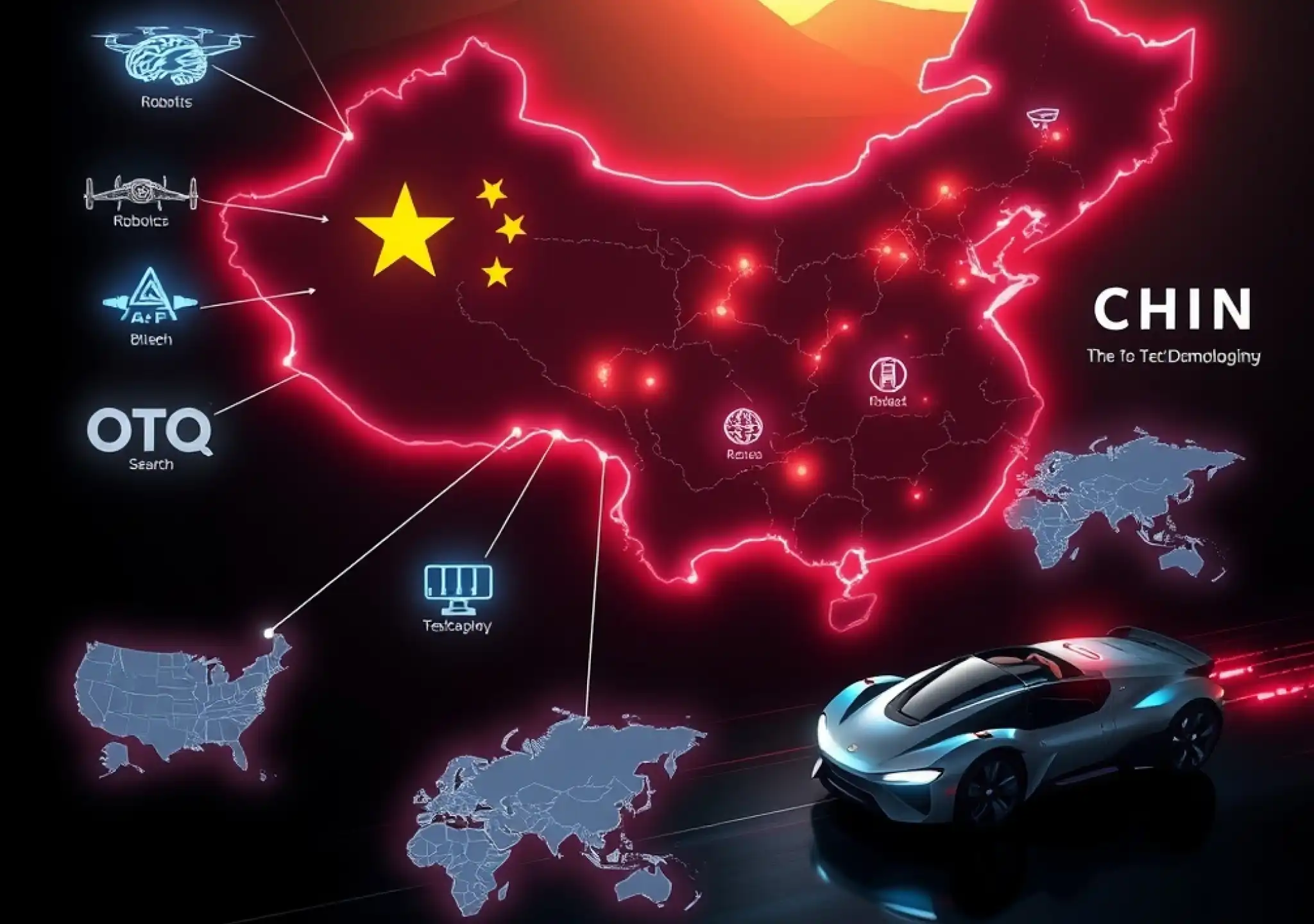Australian think tank warns of growing dominance across key sectors
A new report from an Australian think tank reveals that China is leading the globe in 37 out of 44 key emerging technologies, signaling a shift in global technological leadership and leaving many Western democracies trailing behind.
According to the Critical Technology Tracker released by the Australian Strategic Policy Institute (ASPI), China is rapidly establishing itself as the dominant global tech superpower. The nation’s superiority extends across crucial areas such as defense, space exploration, robotics, renewable energy, environmental technologies, biotech, AI, advanced materials, and several branches of quantum technology.
Notable sectors where China excels include drone technology, machine learning, electric battery production, nuclear power, solar panels, quantum sensors, and the extraction of essential rare earth minerals. The report notes that in some domains, China’s lead is so significant that the top ten global research institutions are all located within its borders.
In stark contrast, the United States currently holds the top position in only seven of the 44 technologies tracked. These include space launch capabilities and quantum computing. ASPI, which receives funding from the governments of Australia, the US, and the UK, as well as defense and tech sector stakeholders, highlights the widening gap between China and Western powers.
The United Kingdom and India rank among the top five contributors in 29 of the technologies. Meanwhile, South Korea and Germany appear in the top five for 20 and 17 technologies respectively, showcasing the broader international competition for leadership in innovation.
ASPI attributes China’s strong performance to its deliberate, long-term strategies and investments in research and development. The think tank described this trend as a “wake-up call” for democratic countries, warning that if left unchallenged, China’s trajectory could result in disproportionate control over future technologies.
“In the long term, China’s dominance in research gives it the foundation to not only drive current innovation but to lead the creation of future technologies still in their infancy,” ASPI noted in its accompanying analysis. “If unregulated, this could result in a significant realignment of global power and influence, concentrating authority within an opaque, authoritarian system where technological decisions are made without transparency or public oversight.”
To counter this growing imbalance, ASPI proposed 23 actionable recommendations. These include creating sovereign wealth funds for R&D investment, implementing technology-specific visa programs, promoting “friend-shoring” between allied nations, and encouraging international public–private innovation partnerships.
The fierce rivalry between China and the United States continues to escalate, with both nations vying for economic and strategic dominance. In response, the Biden administration has introduced export restrictions and financial incentives aimed at weakening China’s tech sector while revitalizing domestic manufacturing capacity.
In a related move, the U.S. Department of Commerce announced sanctions against several Chinese companies on Thursday, including genetics firm BGI and cloud provider Inspur. The entities were added to a trade blacklist over concerns about their alleged ties to China’s military and their roles in enabling state surveillance.

